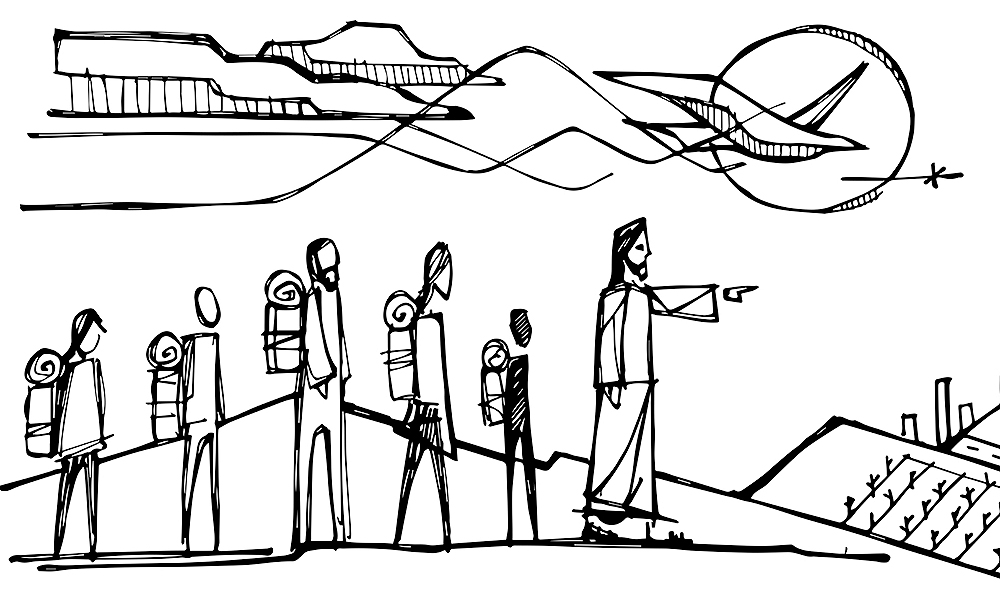
(Dreamstime/Bernardo Ramonfaur)
Back in the late 1970s, Bob Dylan wrote the Grammy-winning "Gotta Serve Somebody." His message? "You may be an ambassador to England or France, you may like to gamble, you might like to dance ... But you're gonna have to serve somebody ... It may be the devil or it may be the Lord, but you're gonna have to serve somebody."
Like all genuine Gospel music, the song is not just singable. It challenges some basic common assumptions — this one going to the heart of the U.S. culture's addiction to individualism and independence. The fact that U.S. citizens seem obsessed about preserving our individual rights is a clear and ironic illustration of the truth of the chorus.
The minute we discover what orients our decisions, what we would protect at any cost, we know what we serve — consciously or not. (If there's nothing that fits the bill, we may be dedicated only to spontaneous self-gratification.)
Dylan could have been paraphrasing from what we hear Joshua saying in today's first reading as Joshua demanded that the Israelites declare their core allegiance.
The Israelites' promise to serve the God who had done so much for then expressed much more than reciting their history or a creed. Their declaration of fidelity implied that their identity as a people didn't rest on a common land, language or kinship, but on their common response to the God who had led them into freedom, protected them and formed them into a unique people.
Their affirmation, "We will serve the Lord!", also declared that it was their Lord who made them who they were. Without God's activity among them, they could not have been a people. Their common identity came from God's work and their response.
St. Paul's reflection on marriage as a sacrament of divine love is oft-criticized for overlooking the equality and mutuality of the relationship between women and their husbands (in verses that may be skipped in the liturgy). With or without those verses, Paul reminds us that our commitments to love form us as who we are.
We become one with those whom we love. This makes genuine friendship and love of any degree an experience and living sign of God's loving interrelationship with creation and of God's unique relationship with human creatures, the only ones we know that are able to choose freely whether and how much to allow God's love to form them.
All of this leads into our final reflection on John 6, the moment when we hear the reaction of Jesus' various disciples. What Jesus has been saying about coming from God and being the very bread of life has taken some of them further than they were ready to go.
Advertisement
Jesus a prophet? Yes! From God? In some way, for sure. Come from heaven to be as much a part of them as the bread they eat? That was a bit of a stretch. If they couldn't really understand or fully accept what he was saying, better to go home sooner rather than later.
Like the time he asked why only one of 10 people cured of leprosy had come back to him, Jesus turned to those closest to him asking, "Do you also want to go?"
Peter spoke for all and responded, "Lord, to whom can we go? You alone have the words of eternal life."
In saying that, Peter took his group further than Joshua's people had gone. Being with Jesus had given them a new identity, and even if they didn't understand everything, they knew that with him, they were on the road to serving God, and God alone.
One of the wonderful things about this moment was that it confirmed for Jesus that the Father had led these people to him. Through him, these disciples had tasted the Spirit that gives life, and they didn't want to live without that experience ever again. Their life with Jesus had changed their identity. They were beginning to understand him as the holy one of God.
Peter's declaration was no intellectual decision. Perhaps it had been for the people who left, but those who stayed made a soul-deep choice. No matter what others would say, no matter how foolish it seemed, no matter what other options might seem easier or more acceptable, they had found their identity in relationship to him. Knowing that they were risking the meaning of their lives, they chose to remain with him.
So, for us, addicts to the independence we think of as freedom, this month of meditating on Jesus as the Bread of Life has led us to hear Jesus question us: "Are you all in?" Will you let our communal relationship become your identity?
Whom will we serve?






